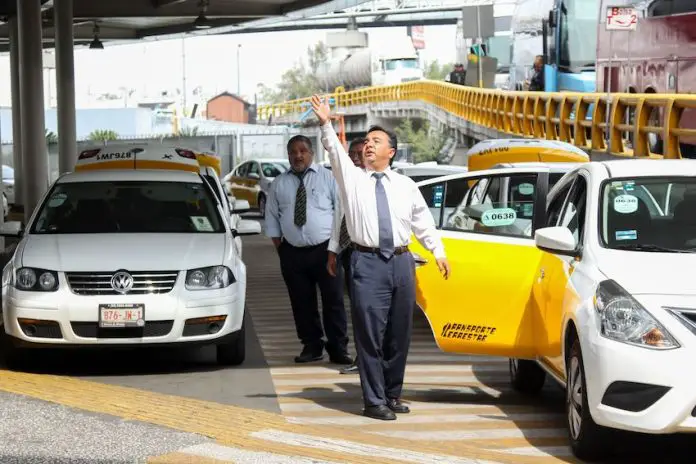The Mexico City International Airport (AICM) announced new restrictions on the use of ridesharing applications at its two terminals last week, prompting frustrated responses from travelers.
On Wednesday, the AICM posted a brief message on X announcing that ridesharing apps like Uber, Cabify and Didi could no longer pick up passengers within the terminal grounds.
Puntos de abordaje de transporte de personas por aplicaciones, en las dos terminales. #AICM pic.twitter.com/vzwnN8iiLl
— @AICM_mx (@AICM_mx) September 13, 2024
Instead, airport authorities established a single designated pick-up spot at Terminal 1 and another for Terminal 2.
Two days later, the AICM posted a pair of videos showing how passengers can get to the designated locations.
The response from the public was swift and negative, even as airport officials insisted the decision would improve security and traffic flow within the terminal.
While some criticized the inconvenience of the change, or expressed security concerns, others complained about the high prices and inefficiency of on-site taxi companies.
Among the responses:
“You really think we are going to walk such a long distance with suitcases while also risking getting mugged?”
“This is the service and security you are offering?”
“If you’d like, maybe I should just walk all the way home.”
One TV news reporter covered the announcement by posing the question “Should I kiss the Uber driver when I get in?” (to make the authorities think it’s a family member picking someone up).
Uber responded by announcing it would continue to pick up passengers inside the terminal areas, saying it had protection via a legal injunction issued in response to restrictions Mexico City International Airport imposed in 2022. “Nothing has changed,” Uber announced, according to online news site Sopitas.com.
Uber also demanded that the airport respect the injunction and called on the authorities to respect the rights of tourists to choose the transportation options they prefer.
The AICM did not respond to Uber’s claim but it did announce hefty penalties for ridesharing vehicles that violate the new restrictions.
Fines could range from 43,440 pesos (US $2,254) to 130,320 pesos (US $6,762) and offending vehicles could be impounded, adding additional costs for ridesharing companies that violate the new rule.
For its part, Didi said it was willing to adhere to the new rule, according to a statement posted by journalist Pamela Cerdeira.
“At Didi, we are always open to collaborating with authorities, taxi groups and private drivers to ensure that airport users in the country have different mobility alternatives. We are convinced that joint and coordinated action will make a difference and contribute to the creation of a better environment for everyone.”
With reports from Infobae, Sin Embargo and Sopitas.com
